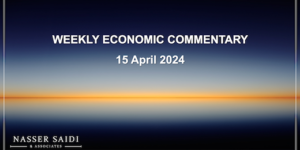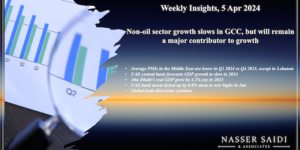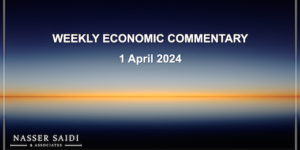Markets
Equity markets in the US closed the year just short of their two-year highs, encouraged by the sharp decline in jobless claims while Eurozone markets were flat after investors took profits. Regional markets closed on a high note with Egypt’s index touching a 7-month high led by blue chip stocks and Saudi’s Tadawul touching an eight-month high yesterday. The dollar lost ground against major currencies; the Swiss franc soared to a record high against the greenback on safe haven demand. Oil prices hit a 26-month high topping $92 a barrel on Friday while gold continued to remain attractive as a safe haven option, closing almost 30% higher than a year ago.
Global Developments
Americas:
- The S&P/Case Shiller index showed that home prices fell 1.3% mom in seasonally adjusted terms with drops across the nation: Atlanta (-2.9%), Chicago (-2%) and San Francisco (-1.9%).
- The Conference Board reported a modest setback in consumer confidence to 52.5 in Dec (Nov: 54.3), both regarding the present situation and expectations.
- Initial jobless claims fell 34k to 388k for the week ending Dec 25, the lowest since July 2008.
Europe:
- France’s revised Q3 GDP estimates showed that economic expansion slowed more than originally estimated (0.3% mom vis-à-vis 0.4%; Q2:0.6%) with rising household spending acting as the engine of growth.
- Eurozone consumer confidence declined in Dec to -11 (Nov: -9.4) following six months of strong readings.
- Estonia joined the euro zone as its newest member but given the current state of affairs, it seems unlikely that other European countries would be too keen to join the union.
Asia and Pacific:
- China PMI dropped to 53.9 in Dec (Nov: 55.2), registering the first decline in five months; input cost sub-index in the official index fell to 66.7 in Dec (Nov: 73.5), showing that prices were rising at a slower pace.
- Japan core CPI fell (for the 21st consecutive month) 0.5% mom in Nov. Novindustrial production increased 1% mom, saar, after six months of declines, on stronger demand for transport equipment and electronic parts.
- Taiwan’s Central Bank hiked its benchmark interest rates by 12.5bps (discount rate: 1.625%, secured loans rate: 2.0% and unsecured loans rate: 3.875%) to normalize lending costs and cool the property market.
- Singapore expanded at a record 14.7% in 2010, from resurgence in export demand, according to the PM Lee Hsien Loong in his New Year’s address to the nation.
- The Reserve Bank of India issued revised guidelines for FX derivatives, including the provision for foreign participation. Foreign institutional investors, foreign direct investors and non-resident Indians can now participate in the INR options market. (Before, they could hedge their currency risk only through forwards).
- India’s Bombay Stock Exchange launched a share index comprising stocks strictly compliant with Sharia law to encourage greater participation by Muslims in India’s financial system.
Bottom line:
2010 was a year that brought back the decoupling argument: the continued high growth in emerging markets (EMEs) vis-à-vis the troubled US and Eurozone. Central banks in the EMEs were forced to react by raising policy rates and measures to cool the property markets as low interest rates in advanced markets (and QE2) led to excessive liquidity also in emerging markets. Meanwhile, all stock markets recovered to some extent in 2010 from the lows reached in early 2009, though, no major country is close to its 2007 peak. Will 2011 be the turning point? All eyes are on China and India for the time being. News from the EMEs will be the dominant theme for 2011.
Regional Developments
- Kuwait’s 8-month government budget surplus widened to KWD 6bn. Meanwhile, Ministry of Public Works announced that at least 139 projects would be executed at a cost of KWD 2.8bn during the year 2010- 2011.
- Qatar’s CPI registered a 0.02% yoy rise in Nov (Oct: -0.8%) as food and transport costs spiraled by 3.7% and 4.1% respectively while rents slipped by 7%.
- Qatar’s Minister of Economy and Finance, in an interview with the Oxford Business Group, said the Qatar Investment Authority plans to acquire 20% of local banks shares, and may acquire $1.8bn of their investment portfolios and real estate portfolios to support the financial sector.
- A report from the Arab Monetary Fund placed stock market gains in the Arab world at nearly USD 100bn to USD 986.6bn in 2010, with the bulk of it coming from Saudi Arabia, Qatar and Kuwait.
- SAMA’s monetary report for Nov showed a 1.9% mom rise in money supply alongside a marginal 0.2% decline in bank lending to SAR 776.3bn while net foreign assets increased 1.1% to SAR 1.627 trillion.
- The Saudi British Bank became the first from KSA to complete the first cross-border RMB trade settlement transaction through issuance of a letter of credit to one of its clients.
- Saudi Arabia has launched a “single window” scheme to bring together representatives from government departments, private laboratories, handling firms and banks under one roof to accelerate customs procedures.
- The Yemen Public Investment Authority disclosed that inward FDI from GCC in 1992-2010 reached YER 562bn in 219 projects and created 16,688 jobs.
- The Yemen government has started training close to 20,000 workers to enter GCC markets, according to a statement by the Deputy Minister of Technical Education and Vocational Training.
- The Ministry of Finance in Yemen has announced the implementation of income tax by the beginning of 2011 (Source: Al Hayat).
- Saudi Arabia has launched its first national car manufacturing company with paid up capital of SAR 1.8bn.
- The Ministry of Oil in Iraq disclosed that the value and volume exported oil in Nov 2010 was USD 4.6bn and 57.3 mn barrels respectively gradually recovering to prewar levels.
UAE Focus
- UAE’s Federal National Council has approved a draft law on public debt management that could contribute to the efficiency and stability of financial intermediation and to economic growth – through countercyclical fiscal policy, financing of infrastructure and development projects, enabling and facilitating conduct of monetary policy and open market operations and overall becoming the cornerstone of debt & Sukuk markets.
- UAE’s Federal National Council approved a 2011 budget with a projected deficit of more than AED 3bn, after spending was reduced by 6% to AED 38bn.
- The UAE central bank instructed banks to raise to 80% their provisions to handle exposure to Algosaibi-Saad and troubled Saudi conglomerates by the end of the year in order to obtain approval for the lenders’ 2010 annual audited accounts.
- Emaar Properties settled its dispute with Saudi-based Jadawel International over claims of approximately AED 1.4 billion. Henceforth neither party will have any pending mutual claims.
- DFM announced that from Jan 2nd the weight of single stocks in its index will be limited to 20% from 25% currently and the percentage of free float shares will come down to 20% of the less traded stocks. The daily fluctuations limits will be set at 15% on the upside and 10% on the downside.
- Nakheel’s restructuring plan is being complicated by new claims from trade creditors that could lead to more legal headaches, two sources familiar with the matter told Reuters.
- The Dubai Financial Support Fund has made available sufficient funds to allow repayment in full of Nakheel’s $750 mn Sukuk that matures on Jan. 16.
- UAE exports showed a strong 39% yoy surge to AED 62.9bn in Jan-Sep 2010, while total non-oil trade witnessed a 11% yoy rise in the first nine months of the year.
- Dubai’s tourism industry is bouncing back, with hotel visitors growing 6% yoy in the first nine months of the year to 5.9 mn. This led to a 6% rise in hotel revenues to AED 9.23bn and occupancy rates rose to 66.





